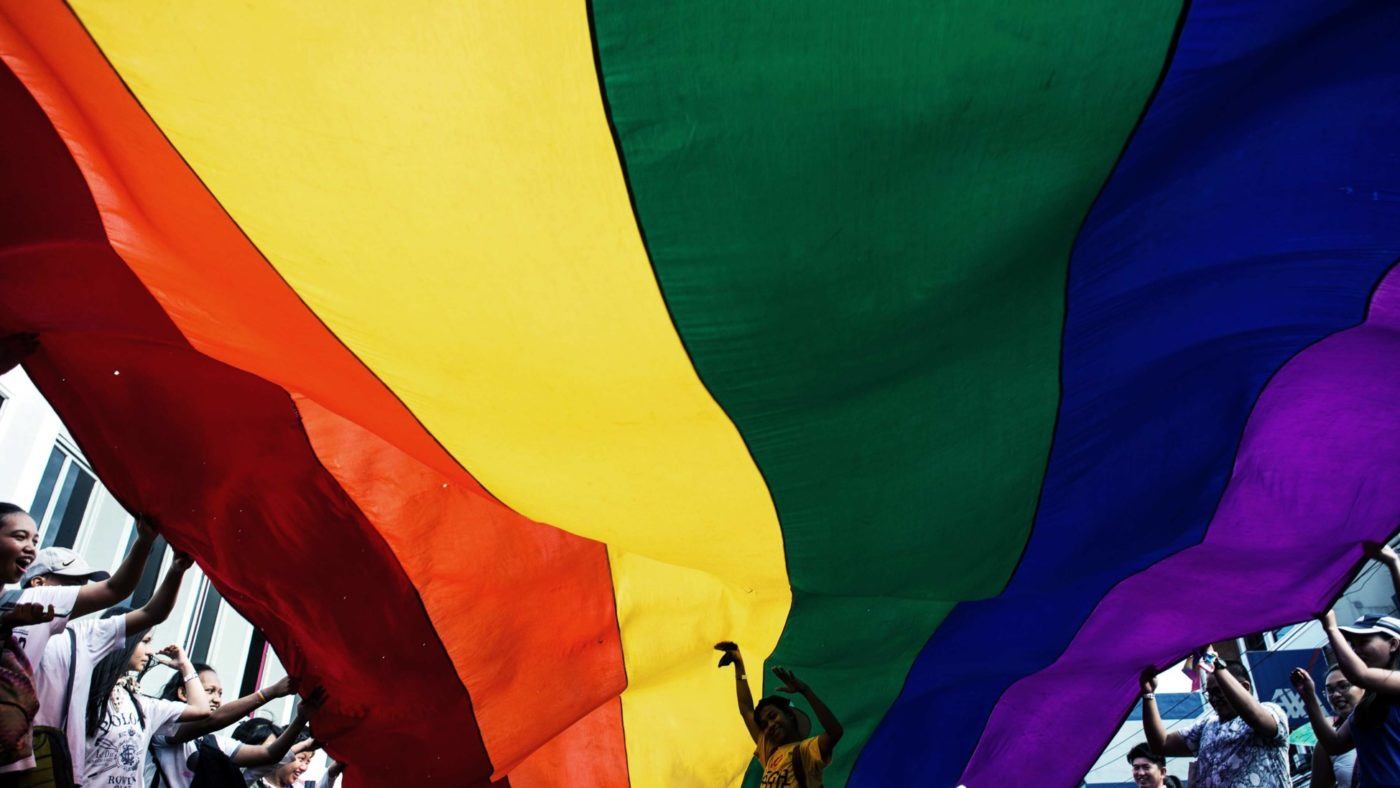It’s Gay Pride in London tomorrow — sorry, I mean “Pride”; all mention of the you’d-think important adjective being deleted from the organisation’s website. When an adjective is required, the word “gay” is buried in a conglomeration of capital letters and algebraic symbols: the official name for the parade is “LGBT+ Community Pride”.
If you’re a salary-person for a MegaCorp then you’ll already have known this. Every outfit from city banks to your local pub is eager to proclaim its corporate commitment to “diversity” by draping a rainbow flag on the shopfront during “Pride week”. But pride in what, exactly? Why the erasure of “gay”? What is this oddly sexless “diversity”? Something is happening to sexual politics which affects everyone, regardless of who shares your duvet.
Let me be clear, I’m not part of the “Why do they have to shove it down our throats?” brigade. With a psychic make-up sometimes defined by its inability to come to a hard conclusion about almost any political topic, I’m proud – yes – of my homosexuality, about how it manifests itself in my character, as my character; about the no-shit-taken approach that I adopted aged 11 and have never seen reason to alter.
I come not to bury Pride, but to praise it: to reclaim it for homosexuality. Gay people are tolerated in modern Britain, of course, but on television at least are required to pretend to sexlessness, as though auditioning for the role of Anglican cleric in a long-unamusing sitcom. At a party in liberal Cambridge last weekend, Keith was talking to a middle-aged lady, who asked him his relationship to me. “He’s my husband,” he said, matter-of-factly. She turned on her heel and thereafter cut us dead.
Not the same thing as being thrown from a building and stoned to death by a cheering Islamic crowd, or hanged from a crane by Jeremy Corbyn’s former employers. But don’t fall into the mindset that the struggle for gay liberation is “over”, even in liberal Britain. Indeed, the changing demographic of the country makes gay people, like Jewish people, the canaries in the mine. When the enemies of liberal pluralism feel strong, they always come for us first (don’t they, Luciana?)
But why object to “LGBT+”, rather than “gay”? Surely I empathise with anyone who faces the challenge of being different to the norm?
Of course I do. But I worry when any political assertion is used to instruct gay people what to believe. Those who claim transgender identity — the “T” in “LGBT+” — should be treated with dignity. But it is a category error, surely, to place transgenderism and homosexuality in the same bucket. They’re self-evidently not the same thing, and one’s attitude to the former can’t be a function of one’s status regarding the latter.
Consequences flow from this error. By eliding homosexuality with “any sexual minority, regardless of whether or not they’re gay” we allow the Left to own the very definition of gay people’s being. We turn a personal act of liberation (gay pride) into just another prescriptive set of Left-wing policies (commitment to “diversity”).
Those consequences are there too, in the snarling faces of the straight Labour activists who turn up at Pride to jeer at whichever gay Tories are marching. A moral obscenity, yes, but also — in the calculus of identity politics, and represented by that shift from “gay” to “LGBT+” — quite logical.
We have allowed the Left to define homosexuality as their politics wishes. Regardless that you marched in anger against the wickedness of Section 28; regardless that you refused to live a lie in the decades before “diversity” was fashionable at work: failure to support (for example) abortion on demand in any circumstances makes you insufficiently “LGBT+”; it makes you “homophobic”. Of course Jezza’s redshirted helpers will turn up and scream at you.
The lady at that Cambridge party would have been sanctioned by most MegaCorps, because her commitment to diversity wasn’t sufficiently enthusiastic. That’s not my definition of winning hearts and minds, and substituting lectures about “diversity” for being honest about one’s sexuality isn’t my definition of liberation.
Here’s why I’m proud: that I responded to my disposition by liberating it from shame, through being as precise as my intellect permits about the nature of homosexuality. The very faculty which enabled that liberation makes it impossible to feel pride over that which I am not, and no one on the planet is “LGBT+”.
Gay liberation translates as “How to survive as a psychologically robust human being, in a world which still largely hates you”. It’s an endeavour too important to drown in the stagnant pond of identity politics: I didn’t kick my way out of one closet, only to be locked into another, this time of the Left’s making.


